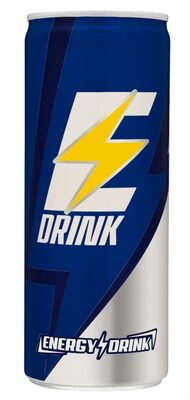
Barcode: 8480000282644
Energy drink
DOUBTFUL
📝 Reason: Certain components in this product have ambiguous Islamic rulings. Consultation with a qualified Halal certification authority is strongly recommended before consumption.
🏷️ Category: Beverages And Beverages Preparations, Beverages, Energy Drinks, Energy Drink With Sugar, Sweetened Beverages
📄 Certificates: Not Advised For Specific People, Green Dot, Not Advised For Children And Pregnant Women
Ingredients:
HIGH CAFFEINE CONTENT.
Not recommended for children or pregnant or breastfeeding women (32 mg/100 ml).
Moderate consumption is recommended.
Details
Exploring the Halal Status of Energy Drink
If you are curious about whether the Energy Drink is Halal, you are not alone. Many consumers are becoming increasingly aware of their dietary restrictions, including the need for Halal certification. This post will delve into the Halal status of Energy Drink, analyzing its ingredients and E-numbers to ensure you make an informed choice.
Understanding the Halal Status
The Halal status of Energy Drink has been deemed ‘DOUBTFUL’. This means that certain components within the product have ambiguous Islamic rulings. It is important to consult a qualified Halal certification authority before consuming this drink. The ambiguity could stem from various factors, including how the ingredients are sourced or processed.
Ingredients Breakdown
Let’s take a closer look at the ingredients of the Energy Drink:
- Carbonated water: Permissible in Islam.
- Sugar: Permissible in Islam.
- Dextrose: Permissible in Islam.
- Acidulant: Citric Acid: Permissible in Islam.
- Taurine (0.4%): Permissible in Islam.
- Acidity Regulators: Sodium Citrates (E331): These are antioxidants that are often used to manage acidity. They have no known Halal issues.
- Magnesium Carbonates: Permissible in Islam.
- Colorants – E150a: The Halal status is marked with an asterisk, indicating further verification is needed.
- E-101: This food color is acceptable but classified under strict guidelines.
- Caffeine (0.03%): Permissible in Islam, though caution is advised as it could pose health risks.
- Flavor: Generic and generally permissible in Islam.
- Vitamins: Niacin, Pantothenic Acid, B6, B12: All are permissible and beneficial to health.
In summary, most of the ingredients within the Energy Drink are permissible under Islamic dietary law, except for specific colorants that warrant further investigation.
Key Considerations
It’s essential to note that Energy Drinks typically contain high caffeine levels (32 mg/100 ml), making it unsuitable for specific groups. The product is not recommended for children, pregnant, or breastfeeding women. Moderate consumption is advised to avoid negative health impacts related to high caffeine intake.
About the Brand and Certificates
While the brand information for the Energy Drink is not specified, it falls under the category of Beverages and Beverage Preparations, specifically Energy Drinks. It is crucial to ensure you are purchasing from a reputable source that adheres to strict safety and quality standards, especially when seeking Halal items.
In terms of certification, the product carries labels advising it is ‘Not Advised For Specific People’ and has the ‘Green Dot’ certification. However, these markings do not necessarily confirm Halal compliance, which is often a separate certification process.
Conclusion
In conclusion, while the Energy Drink features many ingredients that are generally deemed Halal, its overall classification remains doubtful due to certain ambiguity surrounding some components, particularly colorants. For those seeking Halal confirmation, it is best practice to consult with Halal certifying bodies and consider the potential health risks associated with consuming energy drinks, particularly regarding caffeine content. Your health and faith should always serve as a guiding compass in your choices.
